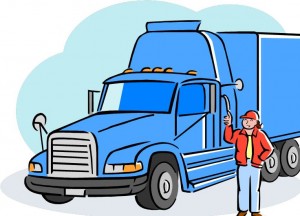The Bullet:
FMCSA established new minimum training standards for certain individuals applying for their CDL for the first time, an upgrade of their CDL, or a hazardous materials, passenger, or school bus endorsement for the first time. These individuals will be subject to the entry-level driver training (ELDT) requirements and must successfully complete a prescribed program of instruction before they will be permitted to take the CDL skills test or, in the case of the H endorsement, the knowledge test. Training must be provided by an entity that is listed on FMCSA’s Training Provider Registry (TPR).
Who is subject to ELDT Regulations?
ELDT is the baseline for training requirements for entry-level drivers. This includes those applying to:
- Obtain a Class A or Class B CDL for the first time.
- Upgrade an existing Class B CDL to a Class A CDL.
- Obtain any one of the following endorsements to their CDL for the first time:
- School bus (S)
- Passenger (P)
- Hazardous materials (H)
The ELDT regulations do not apply to the following:
- The ELDT regulations are not retroactive; they do not apply to individuals holding a valid CDL or an S, P, or H endorsement issued prior to February 7, 2022.
- If an applicant who obtains a commercial learner’s permit (CLP) prior to February 7, 2022, obtains a CDL before the CLP or renewed CLP expires, the applicant is not subject to the ELDT requirements.
- Any individual who meets one of the exceptions for taking a skills test in 49 CFR Part 383 is also exempt from the ELDT requirements.
More Who:
The Federal Motor Carrier Safety Administration (FMCSA) is a separate administration within the U.S. Department of Transportation (USDOT). It’s primary mission is to reduce crashes, injuries and fatalities involving large trucks and buses. To do this it creates and enforces regulations for operation of commercial motor vehicles (CMV).
Daniels Training Services, Inc. 815.821.1550 |
What ELDT is required?
Applicants must successfully complete a prescribed program of instruction presented by training provider listed on FMCSA’s TPR, prior to taking the State-administered CDL skills test.
What is the Training Provider Registry (TPR)?
- The FMCSA Training Provider Registry is not yet operational; it will be in operation by the new compliance date of these regulations: 02.07.22.
- The TPR will identify all training providers that registered with FMCSA and self-certified they meet the requirements for providing CDL training.
- The TPR will retain a record of which CDL applicants have completed the new training and certification process outlined in the ELDT regulations.
- The TPR will include all entities (including public and private CDL training programs and fleet-operated CDL training programs) that register with FMCSA and self-certify they meet the requirements for providing CDL training.
What FMCSA Regulations were Changed by this new Rule?
- 49 CFR Part 380 Subpart F: Entry-Level Driver Training Requirements On and After February 7, 2020
- 49 CFR Part 380 Subpart G: Registry of Entry-Level Driver Training Providers
- 49 CFR § 383.71: Driver Application and Certification Procedures
- 49 CFR § 383.73: State Procedures
- 49 CFR § 384.230: Entry-Level Driver Certification
Contact me with any questions you may have about the transportation of hazardous materials by air, highway, vessel, or rail International and Domestic Daniels Training Services, Inc. 815.821.1550 |
Where:
- This regulation is applicable all operation of a CMV within the U.S. when applying for a CDL, an upgrade to a CDL, or a certain endorsement to the CDL, as identified above.
- Read: What is a commercial motor vehicle?
When:
- 03.17.16 – Proposed rule published in Federal Register
- 12.08.16 – Final rule published in Federal Register
- 02.06.17 – Effective date for new rule
- 03.06.19 – Amend final rule for upgrade from Class B to Class A
- 02.07.20 – Compliance date for new rule
- 02.07.22 – New compliance date
Why:
FMCSA believes these regulations enhance the safety of CMV operations on our Nation’s highways by establishing a minimum standard for ELDT and increasing the number of drivers who receive ELDT.
How:
This rule is based on the authority of the Motor Carrier Act of 1935, the Motor Carrier Safety Act of 1984, and the Commercial Motor Vehicle Safety Act of 1986 (CMVSA). It also implements section 32304 of MAP-21.
Like this article? Subscribe to my Monthly Newsletter No marketing emails! |
Conclusion:
Compliance with the FMCSA ELDT regulations is not required until February 07, 2022. Current regulations of the Pipeline and Hazardous Materials Safety Administration (PHMSA) require any person whose job has a direct affect on the safe transportation of hazardous materials (HazMat) to receive HazMat Employee training. This, of course, includes the operator of a motor vehicle transporting any quantity of HazMat who may also require Driver Training unless the requirements of 49 CFR 177.816 are met by the Hazardous Materials endorsement on their CDL.
For more Information:
- To learn more about ELDT
- For more information about the FMCSA’s Training Provider Registry.
- Interested parties may sign up to receive news and updates from FMCSA about the TPR and the new requirements for CDL applicants, training providers, and State Driver Licensing Agencies (SDLAs).
- States, or their third-party vendors, will need to modify their IT systems to retrieve data from the TPR. Training providers will also have the option to set up an interface to send data to the TPR web service. FMCSA will provide materials and information needed to meet the technical requirements for these web interfaces.
- Contact FMCSA’s Office of Policy: FMCSA / Office of Policy (MC-P) / 1200 New Jersey Avenue, SE / Washington, DC 20590 / 202.366.2551

